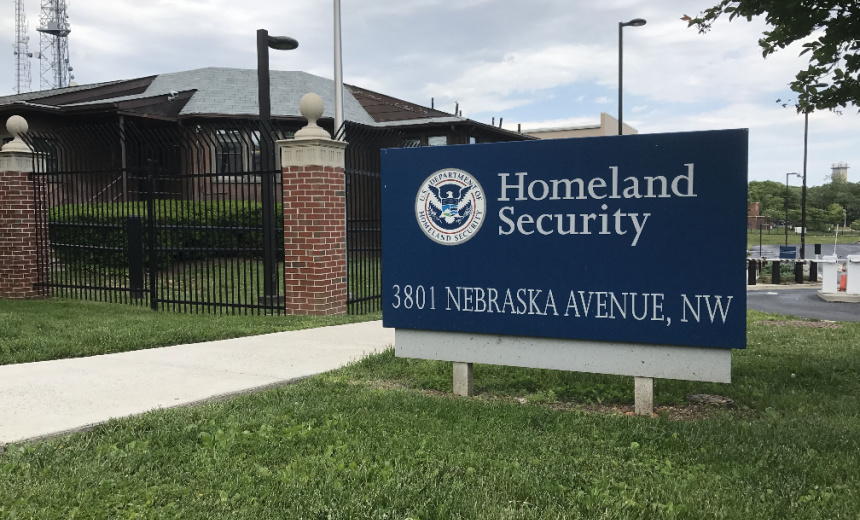Key Federal Cyber Panel to Probe Chinese language Telecoms Hacking
[ad_1]
Election Security
,
Fraud Management & Cybercrime
Cyber Security Overview Board to Look at Beijing-Linked Telecom Breaches

A prominent federal cybersecurity panel is set to investigate Chinese hacking of U.S. telecom networks and wiretapping infrastructure, potentially aimed at presidential campaign staff ahead of the November elections, officials confirmed Monday.
See Also: New Zealand Ministry of Education Protecting Student and Faculty Communications Nationwide
A spokesperson from the Division of Homeland Safety informed Info Safety Media Group in an emailed assertion that the Cyber Security Overview Board “will provoke a evaluate of this incident on the applicable time.” The affirmation follows stories that Chinese language state hackers focused knowledge from marketing campaign telephones utilized by Republican presidential nominee Donald Trump and his working mate, Ohio Sen. JD Vance (see: Chinese Hackers Reportedly Targeted Trump, Vance Phones).
The forthcoming investigation would be the CSRB’s fourth evaluate, following its April report which criticized Microsoft for “avoidable errors” that enabled a Chinese language hacking marketing campaign concentrating on high U.S. officers’ e-mail accounts. Federal companies haven’t but confirmed whether or not the most recent Chinese language hacking aimed to affect the upcoming vote, stating solely that the FBI and CISA “instantly notified affected firms” and supported victims after figuring out the assault.
The Washington Submit reported Sunday that Chinese language hackers collected audio from calls made by “U.S. political figures.” They had been additionally in a position to entry unencrypted communications together with textual content messages, in accordance with the report. Newspaper sources imagine encrypted messages corresponding to these made by way of Sign weren’t hacked.
Reviews additionally point out the telephone hacking is linked to Salt Storm, a Beijing overseas intelligence service operation that targets U.S. programs for intelligence-gathering campaigns (see: Feds Probe Chinese ‘Salt Typhoon’ Hack of Major Telcos).
“Companies throughout the U.S. authorities are collaborating to aggressively mitigate this risk,” The FBI and CISA mentioned in a joint assertion on Friday, including that an investigation is ongoing into “the unauthorized entry to industrial telecommunications infrastructure by actors affiliated with the Folks’s Republic of China.”
Verizon spokesperson Wealthy Younger mentioned Friday in an emailed assertion that the corporate is “conscious a extremely refined nation-state actor has reportedly focused a number of U.S. telecommunications suppliers to assemble intelligence,” following a New York Occasions report that Trump and Vance had been amongst a variety of private and non-private sector targets. Federal authorities haven’t confirmed whether or not hackers efficiently stole knowledge from telecom suppliers or their prospects, together with potential presidential marketing campaign associates.
The 2024 U.S. presidential election has seen an escalating risk panorama in its ultimate weeks, with reported interference makes an attempt from China, Iran and Russia aimed toward disrupting the democratic course of and sowing discord. Homeland Safety warned in an October report that threats from overseas adversaries and home violent extremists will “virtually definitely” proceed into 2025 as risk actors “may search to use doable civil unrest if there are perceptions of election fraud” (see: DHS Warns Election Security Risks May Persist Into 2025).
Congress demanded solutions from telecom giants over the Chinese language hacking marketing campaign earlier this month, saying in letters despatched to AT&T, Verizon and Lumen that there was “rising concern relating to the cybersecurity vulnerabilities” embedded in U.S. telecommunications infrastructure. These rising considerations come after CISA not too long ago warned that Beijing-affiliated hackers have retained entry to U.S. vital infrastructure IT environments for “a minimum of 5 years” (see: Chinese Hackers Preparing ‘Destructive Attacks,’ CISA Warns).
[ad_2]
Source link

